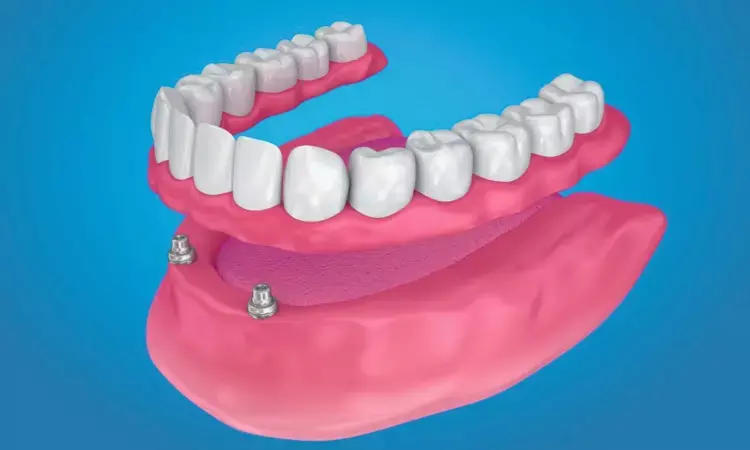- Home
- Medical news & Guidelines
- Anesthesiology
- Cardiology and CTVS
- Critical Care
- Dentistry
- Dermatology
- Diabetes and Endocrinology
- ENT
- Gastroenterology
- Medicine
- Nephrology
- Neurology
- Obstretics-Gynaecology
- Oncology
- Ophthalmology
- Orthopaedics
- Pediatrics-Neonatology
- Psychiatry
- Pulmonology
- Radiology
- Surgery
- Urology
- Laboratory Medicine
- Diet
- Nursing
- Paramedical
- Physiotherapy
- Health news
- Fact Check
- Bone Health Fact Check
- Brain Health Fact Check
- Cancer Related Fact Check
- Child Care Fact Check
- Dental and oral health fact check
- Diabetes and metabolic health fact check
- Diet and Nutrition Fact Check
- Eye and ENT Care Fact Check
- Fitness fact check
- Gut health fact check
- Heart health fact check
- Kidney health fact check
- Medical education fact check
- Men's health fact check
- Respiratory fact check
- Skin and hair care fact check
- Vaccine and Immunization fact check
- Women's health fact check
- AYUSH
- State News
- Andaman and Nicobar Islands
- Andhra Pradesh
- Arunachal Pradesh
- Assam
- Bihar
- Chandigarh
- Chattisgarh
- Dadra and Nagar Haveli
- Daman and Diu
- Delhi
- Goa
- Gujarat
- Haryana
- Himachal Pradesh
- Jammu & Kashmir
- Jharkhand
- Karnataka
- Kerala
- Ladakh
- Lakshadweep
- Madhya Pradesh
- Maharashtra
- Manipur
- Meghalaya
- Mizoram
- Nagaland
- Odisha
- Puducherry
- Punjab
- Rajasthan
- Sikkim
- Tamil Nadu
- Telangana
- Tripura
- Uttar Pradesh
- Uttrakhand
- West Bengal
- Medical Education
- Industry
Root-Retained Overdentures Enhance Stability and Patient Satisfaction confirms Systematic Review

Greece: A recent systematic review of randomized controlled trials has shed light on the clinical parameters affecting the performance and patient satisfaction of root-retained overdentures (RODs).
The research, published in Gerodontology, revealed that despite the limitations of this systematic review, root-retained overdentures continue to be a valid treatment option, providing enhanced denture stability, better bone preservation around abutment teeth, and high levels of patient satisfaction.
"Maintaining good oral hygiene and scheduling regular follow-ups are essential for success. Additionally, more well-designed randomized controlled trials are needed to draw more definitive conclusions," the researchers wrote.
Root-supported overdentures provide enhanced support, horizontal stability, improved retention, and better maintenance of proprioception and sensory feedback from the periodontal tissues, contributing to high patient satisfaction. As a successful treatment option for partially edentulous patients, RODs remain a viable alternative; however, conclusive evidence regarding their clinical evaluation is still lacking.
Against the above background, Aspasia Pachiou, Department of Prosthodontics, School of Dentistry, National and Kapodistrian University of Athens, Athens, Greece, and colleagues assessed the clinical parameters influencing the performance of root-supported overdentures and identified potential factors that may impact their effectiveness.
For this purpose, the researchers developed a search strategy based on the PIO (Population, Intervention, Outcome) framework, conducting an electronic search across several databases, including PubMed, Cochrane Library, and Scopus. This systematic search was limited to randomized controlled trials (RCTs) published in English until January 2023 and was carried out by two independent reviewers. The quality of the included studies was evaluated using the Cochrane Risk of Bias tool.
Findings from the Study:
• The final selection comprised 11 randomized controlled trials (RCTs)
• Clinically relevant variables identified included:
• Complications: Caries were the most frequently reported complication.
• Periodontal aspects and bone changes around abutment teeth.
• Assessment of methods and clinical recommendations for maintaining these restorations.
• Evaluation of patient-related outcomes.
• Risk of bias assessment revealed:
• Nine studies were classified as high risk.
• Two studies were classified as low risk.
• A meta-analysis was not feasible due to the study's characteristics.
In conclusion, using protective or preventive agents can significantly reduce the risk of root caries. For individuals with root-supported overdentures, maintaining meticulous oral hygiene and attending regular follow-up visits are essential. Additionally, addressing the maintenance needs of both RODs and abutment teeth is crucial for ensuring the long-term success of these dental devices.
Reference:
Pachiou, A., Karakostas, P., Roulias, P., & Naka, O. (2024). Clinical parameters that affect performance and patient satisfaction of root-retained overdentures: A systematic review of randomised controlled clinical trials. Gerodontology, 41(3), 328-334. https://doi.org/10.1111/ger.12739
Dr Kamal Kant Kohli-MBBS, DTCD- a chest specialist with more than 30 years of practice and a flair for writing clinical articles, Dr Kamal Kant Kohli joined Medical Dialogues as a Chief Editor of Medical News. Besides writing articles, as an editor, he proofreads and verifies all the medical content published on Medical Dialogues including those coming from journals, studies,medical conferences,guidelines etc. Email: drkohli@medicaldialogues.in. Contact no. 011-43720751


